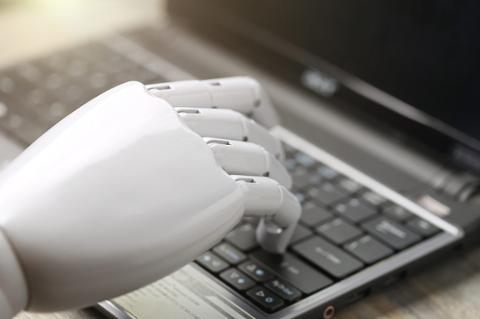But the idea that automation will only snap-up entry level jobs is misguided. For example, Bowery Farming Inc. is a vertical farming startup managed by a faceless machine, with at least one human answering to it. Similarly, Amazon Go stores still require human intervention for stocking shelves and handling customer questions or point-of-sale disputes. In a recent report, the World Economic Forum (WEF) stated: “As technological breakthroughs rapidly shift the frontier between the work tasks performed by humans and those performed by machines and algorithms, global labour markets are undergoing major transformations. These transformations, if managed wisely, could lead to a new age of good work, good jobs and improved quality of life for all, but if managed poorly, pose the risk of widening skills gaps, greater inequality and broader polarization.” WEF called automation the “fourth industrial revolution,” while some think it’s actually wholesale evolution. Elon Musk sounded the alarm years ago: Improperly focused artificial intelligence could end up ushering in an "end of days" scenario for mankind, economically and perhaps even physically. Automation is a matter of governance. It's easy to doubt that it will be guided properly; we’ve seen companies do the ‘wrong’ thing routinely, and there’s a heavy risk factor when you insert A.I. into how people make a living. On the other hand, we also haven’t seen hard figures to suggest machines are taking jobs today, or will be poised to do so any time soon. Even if your outlook is optimistic, it’s best to gaze upon automation with a raised eyebrow. The Amazon Go model suggests automation is simply moving the goalposts for jobs, but Bowery Farms may be a canary in the coal mine for total machine automation.This high-tech farmer grows leafy greens like kale in a factory https://t.co/1rt7zWvhAd pic.twitter.com/Ai7afqOCVH
— Bloomberg Technology (@technology) September 21, 2018
Union: Automation is an 'Existential Threat' to Jobs
Automation is once again running afoul of labor unions. Much as it did with a culinary union in Las Vegas, the specter of machines working day jobs is causing some hand-wringing among union heads and workers. United Food and Commercial Workers (UFCW) president Marc Perrone issued a statement recently attacking Amazon Go. If you’re not familiar, ‘Go’ is Amazon’s cashier-less convenience store concept. Starting in Seattle, Go recently launched its third store in Chicago, its first outside of Seattle. In his brief letter, Perrone said: “It is time for America’s elected leaders to wake up to the economic threat Amazon poses to our economy. Make no mistake, creating cashier-less stores is not about convenience; rather, it is about greed. Jeff Bezos and Amazon are deploying a business model that poses an existential threat to millions of American jobs, and it is time we are honest about the devastating impact this will have on our nation and tens of millions of hard-working families.” Bloomberg, citing people “familiar with the matter,” reports Amazon is considering opening 3,000 of the Go stores by 2021. A main hurdle, according to sources, is cost; each Amazon Go store is believed to take roughly $1 million in bespoke hardware (fixtures, point of sale terminals, security cameras, etc.) before the doors open for business. Amazon refused to comment on its plans, but CEO Jeff Bezos says its physical stores will have to offer an advantage over existing convenience stores: a “just like the other one” option won’t cut it. The UFCW is the largest union representing supermarket and retail workers, and Perrone has never shied from attacking Amazon. He said Amazon “believes that America’s hard-working men and women are irrelevant to customers” when Go launched in 2016.



